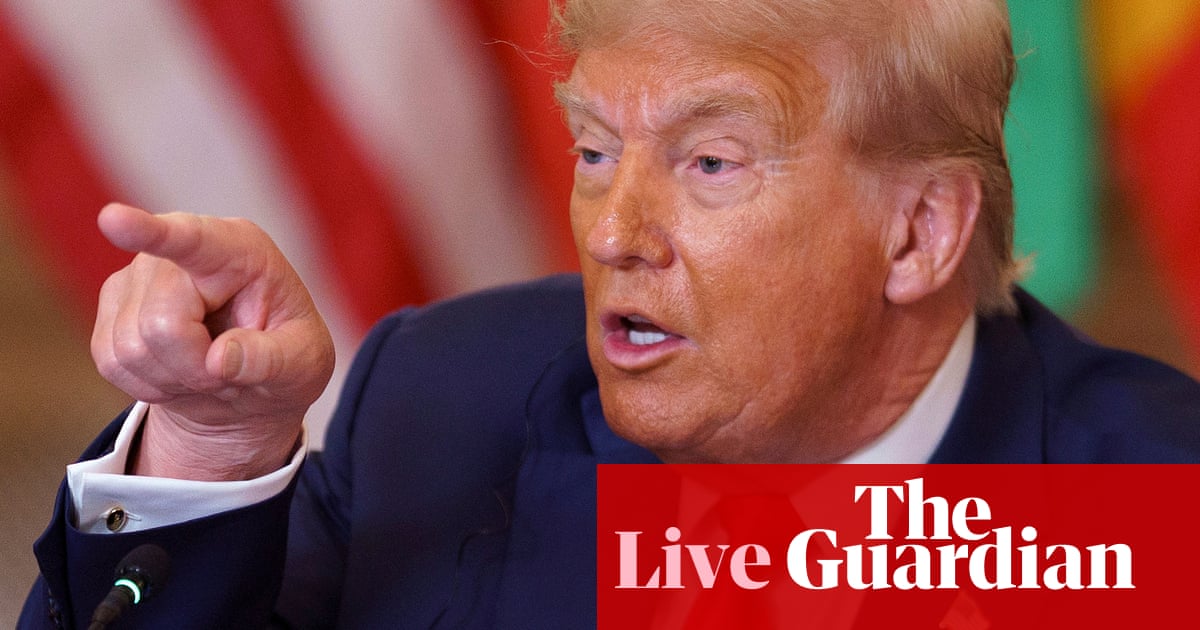Key Events in US Politics: A Snapshot
The Trump Administration’s Migration Proposal
This week saw a significant move from the Trump administration as it pressed five African presidents—specifically those from Liberia, Senegal, Guinea-Bissau, Mauritania, and Gabon—to accept migrants who are being deported from the United States. Sources familiar with the discussions reported that this plan was laid before the leaders during their visit to the White House. However, as of now, both the White House and the officials from the targeted nations have remained tight-lipped regarding any agreements. The administration’s intent appears clear: to expedite the deportation process by facilitating the relocation of migrants to third-party countries in cases where returning to their home countries poses challenges.
Birthright Citizenship Under Scrutiny
In another critical development, a federal judge is set to deliberate on whether to block Trump’s executive order that aims to limit birthright citizenship. The ongoing legal battle comes on the heels of a Supreme Court ruling that has somewhat restricted courts’ abilities to issue nationwide injunctions against the president’s policies. Lawyers from the American Civil Liberties Union (ACLU) are gearing up to request class action status for their lawsuit, which seeks to protect the citizenship status of babies born in the U.S. to non-citizens. Should the judge grant class status, it would empower him to potentially create a broader judicial order to block the implementation of Trump’s directive across the nation.
Implications of Supreme Court Decisions
The backdrop of these legal challenges is the recent Supreme Court ruling that favored the conservative majority, specifically narrowing the scope of previous nationwide injunctions placed on Trump’s directives. This ruling is set to allow the controversial executive order on birthright citizenship to be enforced beginning July 27, unless the new lawsuit leads to a stay on that order. The ACLU’s urgent actions reflect a commitment to advocating for the rights of non-citizens, asserting that judicial scrutiny is vital even in the face of the Supreme Court’s restrictive stance.
Diplomatic Tensions with Brazil
In a surprising twist, Trump recently directed a strongly-worded letter to Brazil’s president, demanding the dropping of charges against former Brazilian president Jair Bolsonaro, who faces prosecution over alleged misconduct during his presidency. Trump escalated tensions by announcing a hefty 50% tariff on Brazilian products as part of his dissatisfaction. Brazil’s current leader, Luiz Inácio Lula da Silva, rebuffed Trump’s demands, emphasizing Brazil’s commitment to its independent judiciary. The incident has drawn mixed reactions, with many Brazilians poking fun at Bolsonaro’s potential successor, remixing videos to highlight the absurdity of the situation.
NASA’s Administrative Uncertainty
Amidst a backdrop of reported staffing cuts at NASA, Trump has opted to broaden the responsibilities of Transportation Secretary Sean Duffy, requesting he take up the role of interim administrator at the space agency. This move has raised concerns regarding the agency’s capacity to fulfill its core missions, given the upheaval within its administrative structure. Insiders speculate that such decisions could impact NASA’s long-term objectives, particularly as the organization navigates its priorities during a time of significant change.
Ongoing Opposition to Florida Immigration Law
Finally, on a more localized front, the U.S. Supreme Court has upheld a judicial block on a Florida law that criminalizes the presence of undocumented immigrants in the state. This decision signals an ongoing clash over immigration policies at the state level and reflects broader national debates surrounding immigration reform. The Republican-crafted law has drawn significant attention and criticism, marking it as a pivotal point in local versus federal legislative authority.
Through these evolving narratives, it is evident that the political landscape in the United States remains dynamic and often contentious, with national policies, international relations, and judicial scrutiny intertwined in a complex dance of governance.


